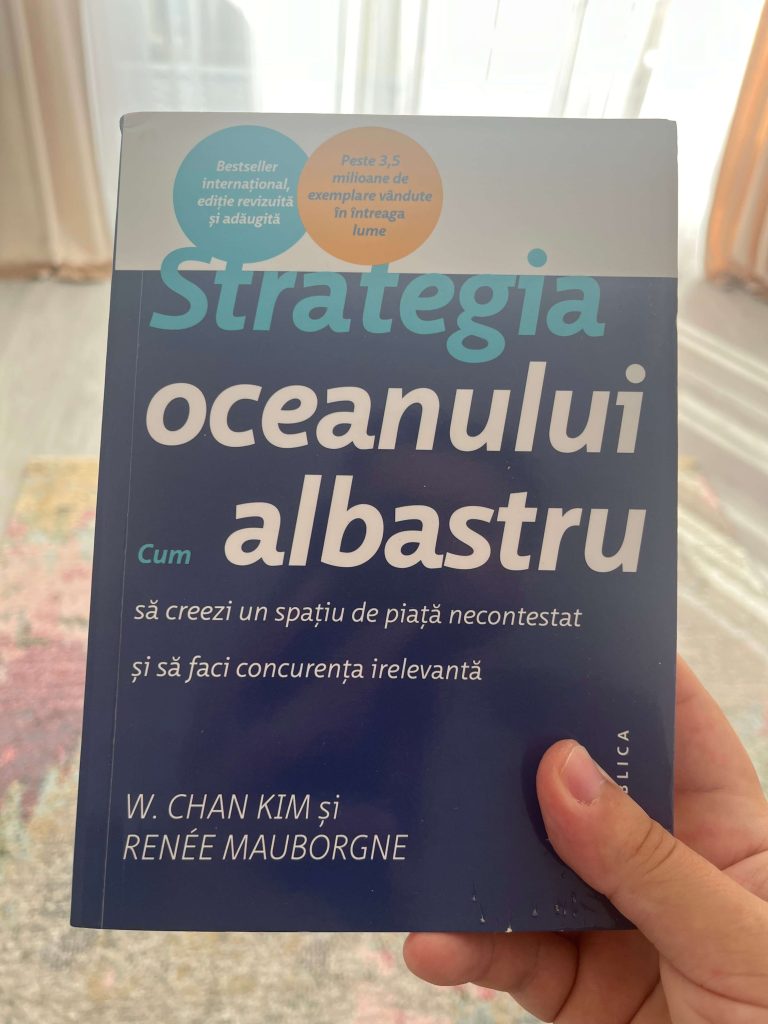The blue ocean strategy for content marketing
I think I first heard about the term “blue ocean strategy” about 5 years ago. I found out there’s a book and I bought it.
I was fascinated to read some stories about companies that managed to enter a crowded market pretty easily.

The reason? They identified a potential blue ocean, created it, and made competitors irrelevant in that category.
By definition, a blue ocean is a market where the competition is lower or nonexistent.
That’s happening because of strategy. A strategy focused on customer problems, how their needs should be fulfilled, and the company’s positioning in the market.
I highly recommend reading the book because besides the core concept there are several examples you can get inspiration from.
Probably after 1 year or so, I met with an old friend and we started talking about SEO since I did that for a couple of years.
He asked me about BestJobs, the company I worked for after I finished high school, and how was doing SEO for a company that big (about 1.5M visitors/month).
I told him the story about how we managed to outperform the main competitor in the market even if in terms of SEO and content we didn’t have the same resources.
5 minutes later, I said in my mind: “Huh, basically what you said before and did back then was to create a blue ocean, that’s how you won”.
Curious now about the story?
I’ll tell it first and then explain how I’m seeing the concept of blue ocean applied to everything that means content.
So, the main competitor had very good rankings for broad keywords with higher volumes of traffic: jobs, jobs in {City}. Beating them on this? Very difficult.
My strategy instead was to focus on specific keywords with lower volumes of traffic (competition is low here), but compensate with volume.
Keywords like: driver jobs in {City}, accountant jobs, etc.
I didn’t know back then, but if you read again the definition for the blue ocean is to target a market where the competition is lower or nonexistent – that’s exactly what I did.
I started with customer problems and how they would search and I created a solution for their needs (the specific search page with the jobs they wanted).
Basically, that’s how in about half a year we managed to outperform the main competitor in terms of organic traffic.
Now that you know the story, probably you already have some ideas about how this could be used in content marketing.
Since then I applied the concept of blue ocean strategy across several marketing activities and it always worked.
Because of all the competition that exists today in every market, a blue ocean strategy for content marketing it’s a must.
It really doesn’t matter if it’s about SEO, LinkedIn posts, whitepapers, or anything content-related.
It’s crucial to find a way to go with all your content efforts into a blue ocean and catch more fish, faster.
And for this to happen, I always like to stick to the basics:
1. What problems do customers face?
2. How can we fulfill their needs?
3. How to position ourselves?
Answering these questions leads to getting all the information needed to create a blue ocean.
5 years ago when I worked for BestJobs, I asked myself the same questions.
1. What problems do customers face?
A: It’s difficult to get specific results from search engines.
2. How can we fulfill their needs?
A: Create landing pages that match what they search for.
3. How to position ourselves?
A: Specific keywords with lower volumes of traffic.
3 questions helped us gain 500,000+ visitors per month from organic traffic.
That’s because these 3 questions helped us create a blue ocean for content marketing.
And that’s why I think this concept would be helpful for your business too.